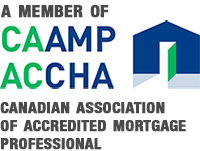


JESSE BRUN
Mortgage IntelligenceLicense #10428
Mortgage Broker (NB)
Mortgage Agent Level 2 (ON)

Alternative Construction Financing Guelph
If you're thinking about building your dream home in Guelph, or if you’re a home builder looking for alternative construction financing, we can help. In this guide, we'll cover everything you need to know about alternative construction loans in Guelph, including how they work, what you need to qualify, and where to find the best deals.
What is alternative construction financing?
Alternative construction financing is a type of loan that is specifically designed to finance the construction for home builders and developers. Unlike traditional mortgages, alternative construction financing is not paid out in a lump sum. Instead, they are disbursed in installments as the construction project progresses.
The disbursement schedule for alternative construction financing is typically based on specific milestones, such as the completion of the foundation, framing, or roofing. The lender will inspect the construction site at each milestone to ensure that the work has been completed according to the plans and specifications. Sometimes the lender will be ok with simply receiving photos of the work when it’s complete or have an appraiser do a quick inspection to confirm that the improvements have been done
Alternative construction loans usually have higher interest rates than traditional mortgages because they are considered riskier by lenders. The risk comes from the fact that construction projects can be delayed or go over budget, which can lead to the lender being stuck with an unfinished or unsellable property.
Our mortgage office specializes in helping home builders and developers in Guelph obtain the financing they need for their construction projects. We work with a network of alternative construction lenders to find the best alternative construction financing for their projects.
Why choose our mortgage office for your construction projects in Guelph?
If you are tired of dealing with banks and not getting the financing support you need, we can offer you the best construction Loans. Our alternative construction lenders in Guelph are competitive and they support many home builders and developers. Our lenders also have advanced methods to quickly fast-track the approval process. As a bonus, our lenders do not have any credit score, income, or presale requirements.
If your project is denied financial support by the bank or if you want to complete more projects faster, we are at your service to help you. Call (888)878-4660 and chat with us for an expert opinion about your project.
We are confident that when you connect with us, we can help to remove all headaches and hassles to get you the financing to start your project as soon as possible. If you have money problems for your profitable projects, we have solutions.
Feel free to visit our construction loan website which shows in more details our private construction lender solutions for home builders and developers in Guelph. The website is: www.ezconstructioncapital.com
Our mortgage office specializes in providing alternative construction financing in Guelph. We have years of experience working with individuals who have bad credit, and we understand the challenges that you may be facing.
When you choose our mortgage office for your bad credit construction loan, you can expect:
- No income requirements
- No presale requirements
- No credit requirements
- Flexible eligibility requirements
- Personalized service
- Fast construction approvals
To get started, simply contact us at (888)878-4660 or fill out the short form on the top left-hand side of our website. One of our experienced mortgage agents will be in touch with you shortly to discuss your options and answer any questions you may have. The website is: www.ezconstructioncapital.com
Below is a list of words that are associated with getting a construction loan. We are providing you the list along with their definitions to help you in your construction journey:
Mortgage broker: a middleman who helps borrowers find and apply for mortgages, typically by working with a network of lenders.
Construction-to-permanent loan: a type of mortgage that allows borrowers to finance both the construction and the long-term financing of a new home or other real estate project.
Builder's risk insurance: insurance that protects against damage or loss during the construction process.
Certificate of occupancy: a document issued by a local government agency that certifies that a newly constructed building meets all local building codes and is safe for occupancy.
Construction contract: a legal agreement between a property owner and a contractor that outlines the terms and conditions of a construction project.
Disbursement: the process of releasing funds from a construction loan to pay for materials, labor, and other expenses.
Contingency fund: a reserve of money set aside to cover unexpected expenses that may arise during the construction process.
Building permit: a document issued by a local government agency that authorizes the construction of a new building or renovation of an existing structure.
Inspection: a process in which a professional inspector examines a property to ensure that it meets all relevant safety codes and standards.
Retainage: a portion of a construction payment that is withheld until the project is complete, typically used as a form of security against any potential defects or delays.
Surety bond: a type of insurance that guarantees that a construction project will be completed according to the terms of a contract.
Construction contingency: a reserve of funds set aside in case of unexpected expenses that may arise during the construction process.
Loan servicing: the process of collecting loan payments, managing escrow accounts, and other administrative tasks related to mortgage loans.
Loan origination: the process of applying for and obtaining a mortgage loan.
Zoning laws: regulations that dictate how land can be used in a given area, typically set by local governments.
Closing disclosure: a document that outlines the final terms of a mortgage loan, including the interest rate, closing costs, and other fees.
Loan-to-value ratio: a comparison of the amount of money borrowed to the value of the property being purchased.
Interest-only loan: a type of loan in which the borrower only pays interest for a set period of time, with the principal due at the end of the loan term.
Balloon payment: a large, one-time payment due at the end of a loan term, typically used in conjunction with interest-only loans or other non-traditional mortgage products.
Construction lien waiver: a document signed by a contractor or subcontractor that waives their right to file a lien against a property in exchange for payment for their services.
Change order: a written document that outlines any changes to the original scope of a construction project, typically used to update project plans and budgets.
Punch list: a list of final tasks that need to be completed before a construction project can be considered fully finished.
Escrow: a financial account held by a third party, typically used to hold funds for property taxes, insurance, and other expenses.
Construction loan: a short-term loan used to finance the construction of a new home or other real estate project.
Subcontractor: a professional hired by a contractor to perform specific tasks, such as electrical or plumbing work.
How Do Construction Loans Work?
A construction draw mortgage is structured to release funds to the borrower in stages, as construction progresses. Here's a brief explanation on how a construction draw mortgage typically works in Canada using 3 draws:
- First Draw (Weather Tight): The first draw is issued when the construction project reaches the "weather-tight" stage, which means the building has a roof, windows, and exterior doors that can keep out the weather. This draw is intended to cover the costs associated with completing the exterior of the home, such as the foundation, framing, roofing, and exterior finishes.
- Second Draw (Sheetrock Ready): The second draw is issued when the construction project reaches the "sheetrock ready" stage, which means the interior walls have been framed and are ready for drywall installation. This draw is intended to cover the costs associated with completing the interior of the home, such as insulation, electrical work, plumbing, and drywall.
- Final Draw (100% Complete): The final draw is issued when the construction project is 100% complete, depending on the lender's policies. This draw is intended to cover the remaining costs associated with the completion of the project, such as landscaping, paving, and final finishes.
In general, the borrower will only pay interest on the funds that have been drawn from the construction draw mortgage, rather than on the entire loan amount. This can help to keep monthly payments lower during the construction period. However, it's important to note that the interest rate on a construction draw mortgage is typically higher than on a standard mortgage loan, due to the increased risk associated with construction projects. The lender may also require periodic inspections of the construction site to verify that the work has been completed before releasing each draw.


